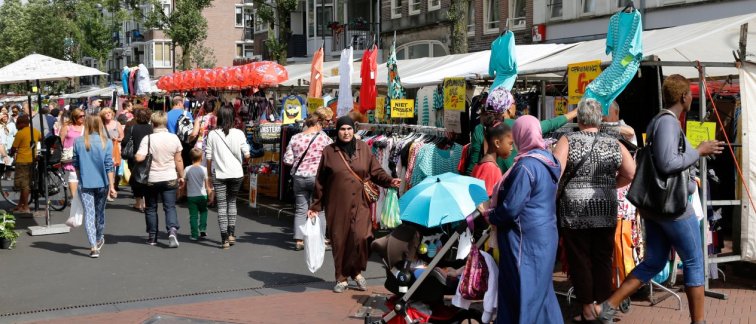Inequalities in disease burden exist between different ethnic groups. However, in cohort studies, groups with an immigrant background are actually underrepresented. For example, because people are invited by letter in Dutch while they are not familiar with the language. Since some health problems seem to be more common among these specific groups, it is important that they participate in health research. We can only change the unequal burden of disease if we understand its biological, psychological and social causes.
The Healthy Life in an Urban Setting study (HELIUS study) is an initiative of Amsterdam UMC and GGD Amsterdam. Almost 25,000 participants of Turkish, Moroccan, Hindustani- and Creole-Surinamese, Ghanaian and Dutch origin are participating in the study. It is a wide-ranging study looking at infectious diseases, cardiovascular diseases and mental complaints such as depression. Moreover, a respondent panel consisting of forty people has now been set up. They come from different groups and share their thoughts with the researchers about the study.
Diabetes, hepatitis, COVID-19
The findings of the study provide the basis for adjustments in the guidelines that General Practitioners follow in diagnosing diabetes. People of Hindustani-Surinamese origin are now being checked for diabetes at a younger age, because the study showed that they get this disease at a younger age. Furthermore, migrant groups are now being screened more often for hepatitis B and C, as it has been found to be more common in these groups.
During the peak of the pandemic, ZonMw had specific questions about the course of the COVID-19 epidemic in migrant groups. The HELIUS study showed that in these groups there were more infections and more severe consequences from COVID-19. In response, the GGDs assembled specific teams to provide the groups with information about COVID-19 and vaccinations. Doctors also went out into the neighborhoods to answer one-on-one questions, as this appeared to be necessary.
Greater participation of ethnic groups
Ruben Rogers is one of the participants and has been participating in the HELIUS study for several years: "My doctor recommended to participate. Through my participation in the study, I am gaining a better understanding of my own disease. It is an important study; it deals with diseases that I also see around me among friends. I'm participating so I can contribute to scientific research, in order to move forward a little bit." Ruben also discusses the study and his participation with his friends, resulting in some of them signing up as well.
Researchers visit people's homes to conduct questionnaires, together with an interviewer from the same ethnic group. This creates more trust, which encourages people to participate. There has also been a lot of attention for the study in the press, partly by using ambassadors from different ethnic groups. They explain the importance of participating in this study, for example, in broadcast station 'Omroep X Zuidoost' and a Ghanaian radio station. Finally, even (informative) plays were performed in the Ghanaian church; anything to reach this group.

